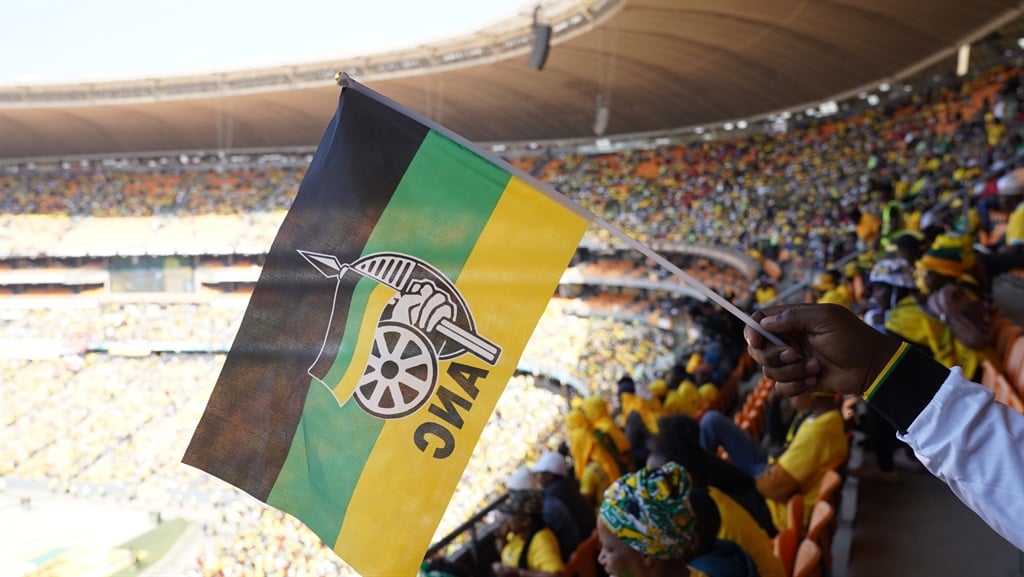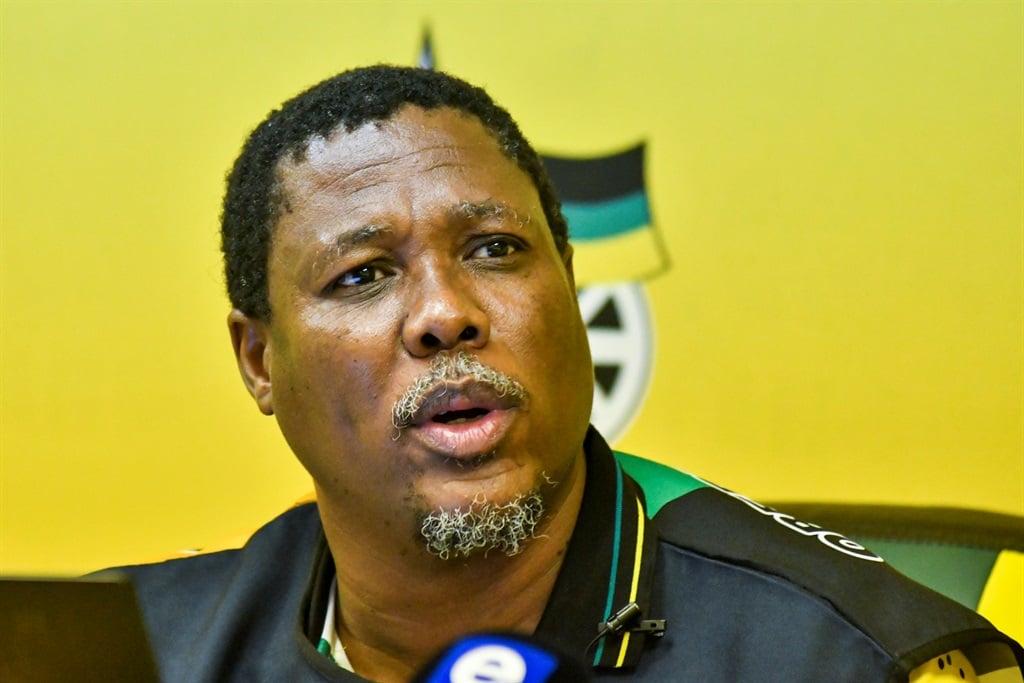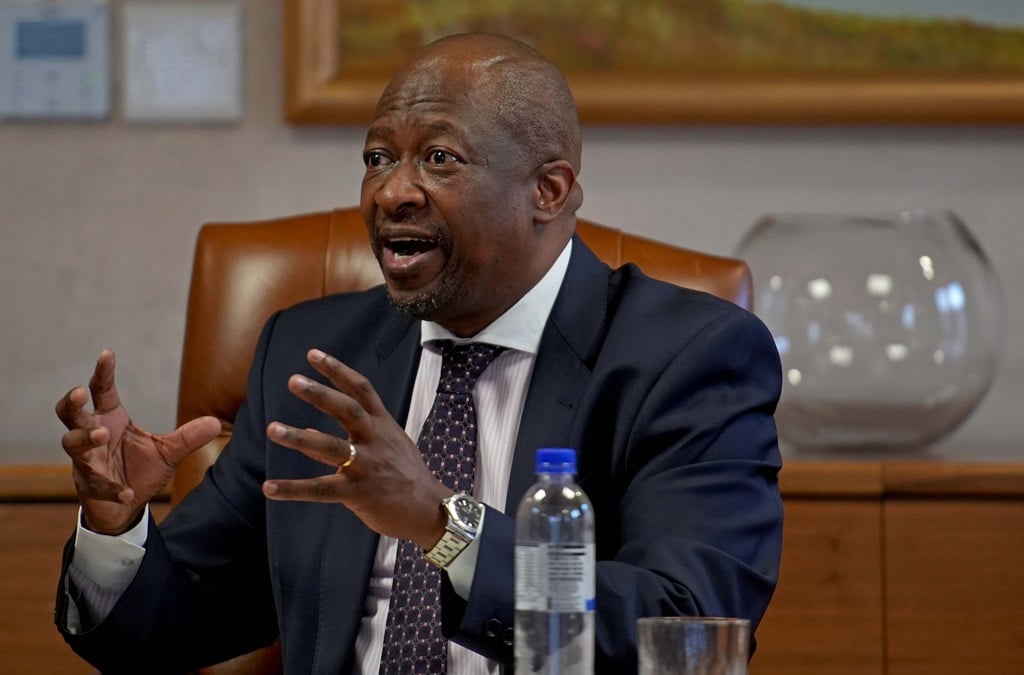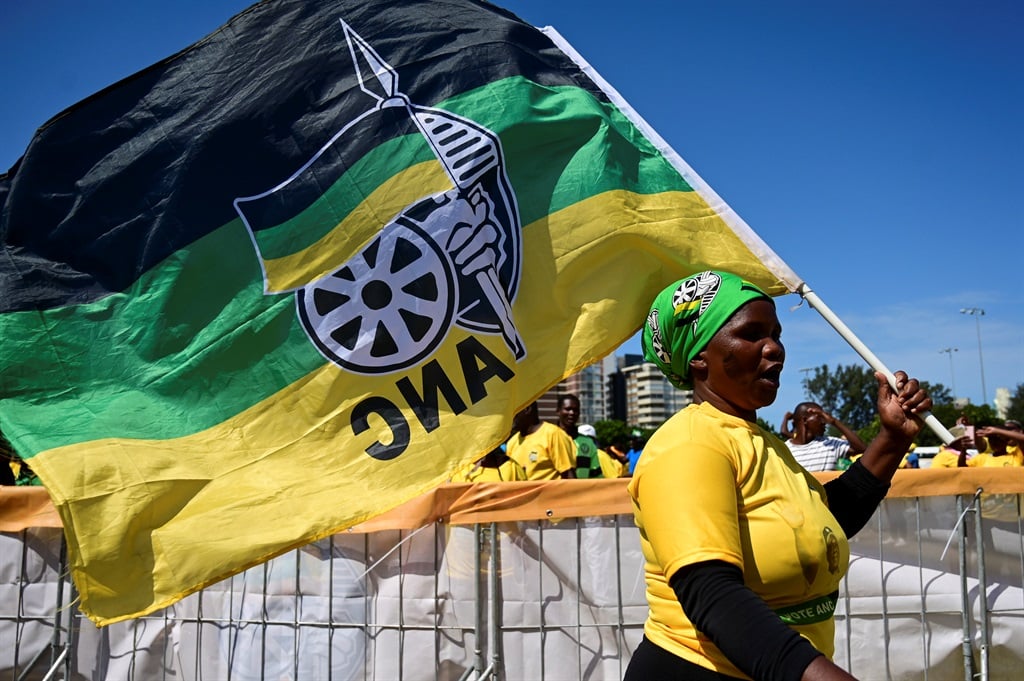
- Early projections continue to show that the ANC could lose its majority in Gauteng.
- This could see the party scramble to form a government in the coming days.
- Find everything you need to know about the 2024 general elections on News24’s Elections Hub.
- Track the latest results via our Elections Map.
The ANC in Gauteng could suffer its most devastating blow yet, as early projections indicate the party stands to lose its majority. News24’s projections have put the party at 35%, a dramatic 15-percentage-point drop.
Should the party lose its majority in Gauteng, South Africa’s economic hub and one of the most sought-after provinces, it may be forced to form a coalition government.
News24 projections also indicate that the DA will receive 27% of the vote; the EFF 12% – a drop from 14.1% in 2019; the newbie uMkhonto weSizwe Party (MKP) led by former president Jacob Zuma could receive 10%; ActionSA 4%; the Patriotic Alliance 2%; the FF Plus 3%; and Rise Mzansi, BOSA, and IFP have been projected to receive 1% each.
Political analyst Mpumelelo Mkhabela has warned that the picture playing out in Gauteng may result in a stalemate.
“The last time I checked the numbers, it appeared that there was going to be a stalemate in Gauteng because if you looked at the EFF, which we had thought could be the kingmaker, the numbers had shown that even if it were to go together with the ANC, they wouldn’t be able to constitute a government. Similarly, the Multi-Party Charter parties also wouldn’t be able to form a government.
“So, what would then happen if the results were to continue to be like this until the end, was that people have to get out of their earlier cocoons of political alignment and there [would] have to be a new realignment of the politics of Gauteng to be able to form a government,” Mkhabela said.
This, he said, could be how things pan out at a national level, adding:
We don’t know whether the results will actually end up the way they are at the moment, but at this stage, it looks like a complete stalemate.
Until now, speculation has been rife that the EFF and the ANC will form a coalition and co-govern Gauteng, mirroring similar arrangements locally.
The ANC and the EFF co-govern in Ekurhuleni and the City of Johannesburg. Before results started to come in, the EFF looked poised to forge a government with a party with a similar “far-left ideology”.
A grand coalition between the DA and the ANC had also been previously touted. But Mkhabela warned that such a partnership may present its own challenges.
“It’s one of the options that the DA and the ANC have, and it has been touted even before the elections, but the DA also has the Multi-Party Charter (MPC) platform, and it has promised its voters that that’s the platform that they were campaigning with to shore up their support base as a way of showing that they can collaborate with other parties.
“And before the elections, the other parties were already complaining that the DA might be prepared to sell out the MPC in favour of the ANC,” Mkhabela said.
He added that the big question was whether parties would stick to their promise to voters.
Mkhabela said:
The greater the uncertainty is whether the ANC can form the government at the national level, the more it opens up for a whole lot of permutations of which parties can co-operate with the ANC and can jump out of a coalition.
“Could it be the DA that jumps out of the MPC to work with the ANC, or could it be a combination of other parties? Could it be the Freedom Front Plus, IFP that jumps out to collaborate with the ANC, or is it possible in the extreme, very unlikely situation that the Multi-Party Charter can co-opt the EFF and perhaps put the ANC in the opposite bench?” he asked.
Where did the ANC go wrong?
For months now the ANC has been on the streets, canvassing support to woo voters and secure votes. The party employed several tactics, including reminding voters of what they believed were successes over the past 30 years.
People were also told by ANC Gauteng secretary TK Nciza that “the ANC loves them, and Mandela loves them”, hoping to tap into their loyalty to Nelson Mandela.
As the Gauteng election results picture plays out, it seems Nciza’s message may not have resonated.
In previous months, ANC Gauteng chairperson Panyaza Lesufi embarked on a job bonanza with his Nasi iSpani programme. Lesufi denied that this was electioneering.
The ANC’s campaign also focused on discrediting the DA and highlighting shortfalls where the party governed, especially in a coalition.
Provincial leaders were expected to arrive at the Gauteng Results Operation Centre at around 12:00 on Thursday but failed to do so. By around 15:50, Lesufi had yet to speak to journalists.
Attempts to reach ANC Gauteng spokesperson Lesego Makhubela were also unsuccessful.
READ | Projections suggest the ANC is likely to lose control of Gauteng
Thulani Kunene, ANC Gauteng elections manager, said it was too early to tell.
“We are still only at 15% of the votes counted; I think it’s too early to make a call on the elections,” Kunene said.
By 22:00, 28.2% of the votes had been counted in Gauteng and the ANC was leading at 33.02%.
Reflecting on their campaign, Kunene said the party had spoken to people, and that they had responded. “Voters decide. We spoke with our people, and we presented the best plan, and we feel that the plan is the best.
“We not only had a plan we implemented, but we also provided people with jobs; over 90 000 people were employed, and we are in the process of training more.
“We have done enough to make sure that we win the support of the people,” Kunene added.
READ | Adriaan Basson: One step closer to an ANC-DA grand coalition – and why it’s good news
But Mkhabela said the ANC may be on the backfoot because it made mistakes when governing as part of coalitions in Gauteng.
“The ANC made mistakes with the coalition arrangements they’ve made in Ekurhuleni and Johannesburg between the time of the last municipal election in 2021, and now those municipalities have not delivered.
“In fact, things have deteriorated, and I think that voters who live in those municipalities blame the ANC for that. So, the negativity has rubbed off the ANC, and in addition to many other things that people are not satisfied with that they would have expected to be delivered by the national government,” he said, adding that Gauteng was tough to crack because of its affluent voters.
“Gauteng has got the largest concentration of voters; it’s also got the largest concentration of affluent voters, people with the middle class, and these are the well-informed people. They have access to a lot of information, and people of all income levels, including the middle classes and high-income groups, are always likely to be very critical.
“It doesn’t matter that they are well off. They are doing well; they drive nice cars and all of that, but they are always the first people to drive political change in society.
“Gauteng would always be difficult for any governing party. It would be difficult to satisfy the affluent people. They are often the ones who drive political change; that’s why Gauteng is difficult,” Mkhabela said.






Recent Comments